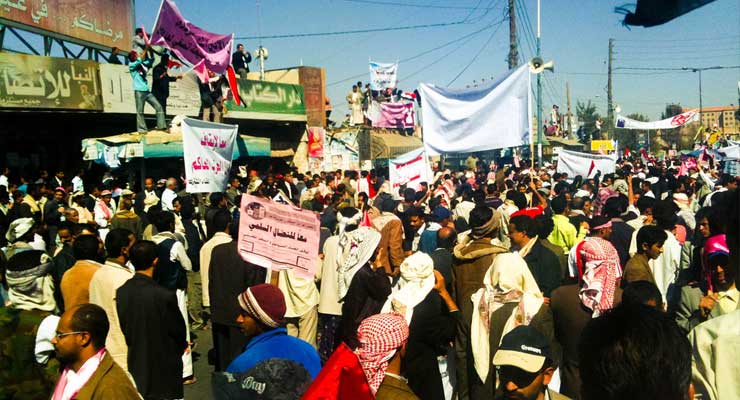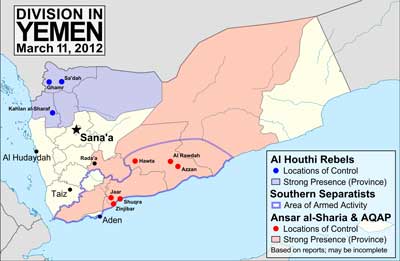
The atrocities currently taking place in Yemen have been modulated by Washington officials and disregarded by the American media. This lack of concern towards the situation in Yemen stems presumably from the fact that U.S.-backed intervention forces are the key contributors to most of the chaos and turmoil.
In fact, Human Rights Watch reports that the Saudi-led coalition, supported largely by Washington, has killed several thousand civilians in a long, continuous series of criminal and inhumane air strikes that target villages, hospitals, schools, workspaces, and mosques. While the United States is not openly involved in such attacks, there is evidence that the weaponry being used indeed originates from the United States, which creates an unfortunate direct link to the unlawful engagements being committed. As a response, there has been a global call for the United States to end involvement, as not doing so violates the Arms Trade Treaty (ATT)—an international trade agreement which specifically prohibits the selling of weapons that will later be used to commit war crimes.

In terms of understanding the war in Yemen itself, conflict began in 2014, with the Houthis sensing weakness and failure in President Abd Rabbu Mansour al-Hadi, and thus, pursuing control of the northern heartland of the Saada province and its neighboring areas. In January of 2015, the Houthis gained power, taking over Sanaa and key points in Yemen, including the presidential palace, which effectively put al-Hadi under house arrest until his eventual escape.
A few months after their major victory, the Houthis furthered their efforts, seeking control of the entire nation of Yemen. It was this specific increase in power of the Houthis that alarmed Saudi Arabia, due to the group’s ideological alignment with geopolitical enemy Iran, prompting a Saudi-led coalition to fight back through support from the United States, the United Kingdom, and France.
From March 2015 to September 2016, the United Nations has recorded 4,014 deaths and thousands of injuries due to the air strikes caused by the U.S.-backed Saudi coalition. Additionally, the conflict has forced 2.2 million Yemenis into displacement, and hundreds of thousands to flee the country altogether. Millions more have been forced to grapple with starvation, as well as a lack of access to health care and clean water. Currently, there are 21 million Yeminis, including millions of children, who are reportedly in dire need of some form of humanitarian aid.
Yet the solution to end the conflict is clear: it starts with removing interventionist support backing the hostile coalition, primarily focusing on the European and American governments that have sustained the fighting. As suggested by Human Rights Watch, there should be an urgent suspension of all “arm sales to Saudi Arabia,” and additionally, “for the United Nations human rights office to send additional investigators to Yemen to carry out credible investigations of alleged abuses by the coalition, the Houthis and their allies, and all other parties to the conflict.”
Most recently, however, the American government has made progress— according to the Washington Times, one unnamed official says that the United States has decided to cancel approval on munition sales, specifically due to “concerns with the flaws in the Coalition’s targeting practices and overall prosecution of the air campaign in Yemen.” While such a position is not a full-fledged shift, it moves the world one step closer towards developing stability and eradicating war-caused suffering. Beyond the humanitarian concerns, backing away from the coalition also means disenabling the rise of extremist and terrorist organizations from prospering in Yemen, which singlehandedly puts the world in a safer position.
Moving forward, the United States should continue to evolve its policy decisions to better match the noninvolvement that the Human Rights Watch advises, and there needs to be overall increased attention from both the media and the United Nations regarding the atrocities being committed by all actors in this appalling war. Meanwhile, activists should remember that speaking up for the security and recovery of Yemen means speaking up for the security and recovery of all lives and all of humanity. When one soul suffers in silence, each fellow human being on this planet bears responsibility. The least one can do is speak up for the voiceless in hopes of inspiring the change needed to end devastation.
Leave a Reply